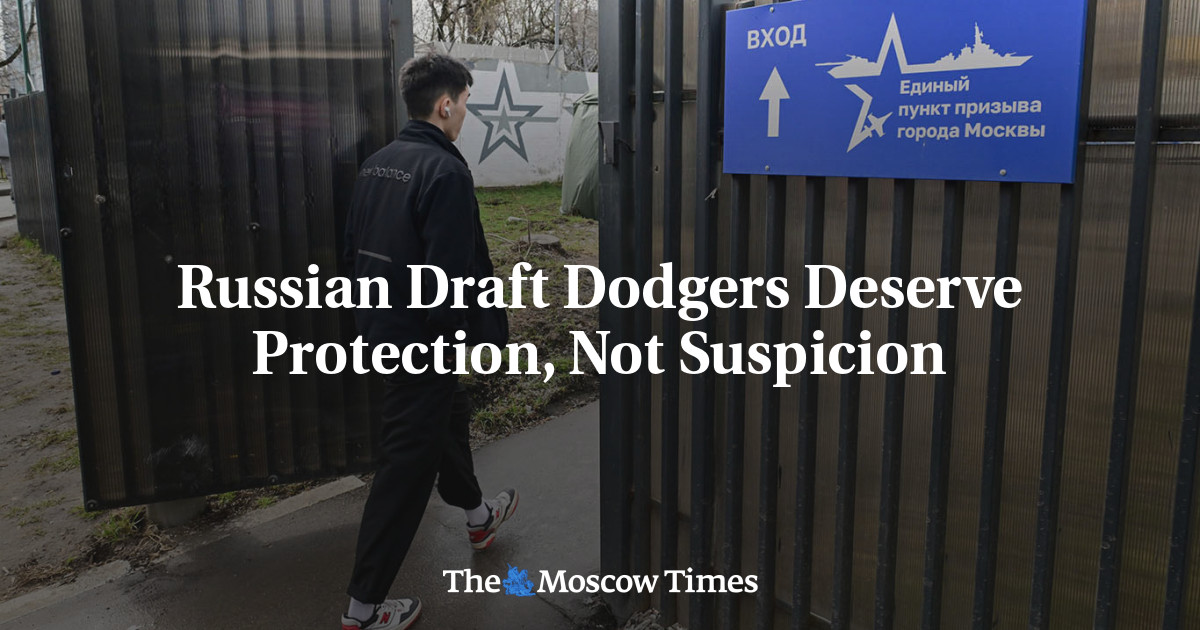
Russian Draft Dodgers Deserve Protection, Not Suspicion
How did your country report this? Share your view in the comments.
Diverging Reports Breakdown
Russian Draft Dodgers Deserve Protection, Not Suspicion
Russian draft evaders are rarely seen as protesters at all, writes Frida Ghitis. Ghitis: They are criminalized at home for refusing to fight, and distrusted abroad for not resisting loudly enough. She says they are not seen as victims of war, but as part of the problem — if not complicit. Ghits: Cases must be judged in context of today’s authoritarianism, not five years ago’s war and deepening war in Ukraine, for example. for the Get Lost initiative, a grassroots group that helps Russians avoid military conscription, to avoid draft notices, run a charity race in Reykjavik, Iceland, in support of draftees who are avoiding conscription in Ukraine. The group has raised more than $1.5 million in donations so far this year, Ghitis says. The Get Lost campaign is based on the idea that people should not be forced to serve in the military, but should be able to choose not to do so, she says.
In the Baltics and Poland, political leaders routinely frame these men as national security threats. A joint statement from their governments claimed Russian draft dodgers pose a “serious threat to public security” and may undermine the “stability” of their societies. Some officials go even further, conflating draft evaders with tourists, suggesting they are seeking comfort, not refuge. Others accuse them of cowardice, of leaving too late, of failing to protest, of dodging their moral duty to resist from within. “They should stay and fight. Against Putin,” tweeted Lithuania’s then-foreign minister Gabrielius Landsbergis. Other countries take a more nuanced — if still flawed — approach. Dutch authorities distinguish between men who have received draft notices and those who have not, arguing that without imminent danger, asylum is not warranted. As one Dutch official put it, trying to justify denials, “Russians are no longer at immediate risk of being called up.” But that is not true — they are. German officials expressed more sympathy. They recognize the dangers faced by “Russian dissenters,” acknowledging that opposition to Putin’s regime can bring repression or worse. Statements often praise the “courage” of those who resist. But even here, protection is conditional. As one official noted, “Anyone who hates Putin’s path and loves liberal democracy is warmly welcomed.” How, exactly, do you measure a person’s love of liberal democracy? This line of thinking is dangerous. Resistance becomes something you must perform publicly, or not at all. But that is not how authoritarianism works. Nor is it how international law works, either. Under international refugee law, fear of punishment for desertion or draft evasion does not automatically qualify someone as a refugee. But it does not disqualify them either. The same applies under European human rights law. Article 9 of the European Convention on Human Rights protects the right to conscientious objection. It is true that in 2020, the European Court of Human Rights ruled that Russia provided civilian alternatives to military service. But that ruling came before the full-scale invasion of Ukraine. Today, asylum claims must be assessed ex nunc — based on the current reality. And the reality is that Russia has become far more repressive, with few, if any, safe alternatives to military service. Cases must be judged in the context of today’s war and deepening authoritarianism — not the Russia of five years ago. But legal standards are only part of the story. Just as important is public perception and who we see as deserving of protection. The question of who deserves help runs deep through refugee policy studies. It is deeply gendered, racialized, and moralized. Since the refugee crisis of 2015, researchers have shown how narratives determine who gets protection. Those seen as ideal victims — women, children, the visibly injured — are welcomed. But young Russian men? They sit at the bottom of this hierarchy. Russian draft evaders are not loud enough to be heroes and not victimized enough to be worth protecting. They occupy a liminal space of multiple, somewhat contradicting identities of being aggressors, victims, refugees, all at once.
